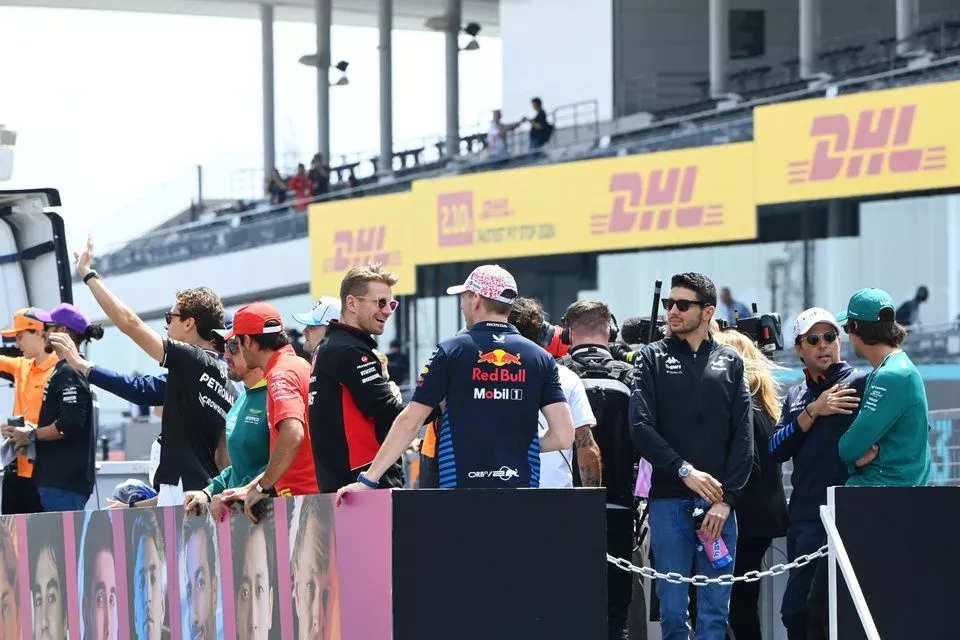
GPDA President Alex Wurz: “We Are All Aware That We Are Role Models
GPDA Yet to Respond Officially: Alex Wurz Calls for Common Sense
In the world of Formula 1, where speed and excitement are paramount, the behavior of the drivers is just as important as their performance on the track. Formula 1 drivers are seen as icons by many young fans, and their actions both inside and outside the car set examples for the next generation. As a result, the Grand Prix Drivers’ Association (GPDA) President Alex Wurz recently made it clear that every F1 driver is aware of their responsibility as a role model.
This statement comes amid ongoing discussions about the FIA’s new regulations regarding misconduct, particularly in terms of inappropriate language and actions in official settings. The governing body has introduced stricter penalties for drivers who use offensive language or behave unprofessionally in public or official settings. Under the updated rules, drivers may face significant consequences, including fines of up to €30,000, a month-long ban, and even potential deductions in World Championship points if they commit three violations.
New FIA Regulations and Their Impact on Drivers
The latest updates to the FIA’s International Sporting Code have introduced new measures targeting conduct that could harm the reputation or cause damage to the image of the FIA and its members. Any behavior, words, or written content that could be deemed as causing “moral harm or reputational damage” to the FIA, its organs, members, or officials will now be subject to penalties. This move has been met with mixed reactions from the F1 community, with many wondering how these new rules will impact the atmosphere in Formula 1.
While the new penalties are significant, they are not intended to stifle free expression or passion. Instead, they aim to ensure that drivers, as global ambassadors of the sport, maintain professionalism and respect for their fans and the organizations they represent. The rules target inappropriate language and misconduct during official media events, interviews, and press conferences, where F1 drivers are often in the public eye.
Alex Wurz Speaks Out on the Issue

Alex Wurz, the president of the GPDA, has shared his thoughts on the new FIA regulations and their potential impact on the F1 community. In his comments, Alex Wurz emphasized that every driver is aware of their role as a public figure and that being a good role model is something that all F1 drivers strive for. He pointed out that, while inappropriate language can sometimes slip out, it is a matter of maintaining respect in public forums, and drivers need to find ways to express themselves without crossing the line.
In an interview with Sky Sports News, Alex Wurz explained:
“We are all aware of our roles as role models, and we want to be good examples for young fans watching. Every driver wants to be a good role model. I don’t know any of the 20 elite athletes racing in F1 who want to start riots or curse and shout. It’s simply not in our nature.”
Alex Wurz also discussed the fact that, while the rules around offensive language are important, they should not overshadow the broader issue of sportsmanship and professionalism. He noted that the drivers, as elite athletes, face a tremendous amount of pressure, and sometimes a slip of the tongue can occur during intense moments.
“Sometimes, a word can slip out, and the broadcasters may not be able to censor it in time. This is a topic we need to address together,” Alex Wurz continued. “We must also stay true to ourselves, but we can still be authentic without resorting to offensive language.”
Alex Wurz emphasized the importance of keeping the conversation open and finding a balance between being genuine and maintaining professionalism. He also mentioned that while this issue may seem like a bigger problem in the media than it is within the sport itself, it is still something the drivers need to discuss as a collective.
F1 Drivers and Their Responsibilities
Formula 1 drivers are not just athletes; they are public figures who are constantly under scrutiny. Their every move is captured by the media, and they have a large fanbase that looks up to them for inspiration. As such, their behavior off the track is just as important as their skills on it. F1 drivers are role models for many young fans, and their actions, both positive and negative, can have far-reaching consequences.
The issue of drivers being held accountable for their language and actions is not a new one, but the introduction of stricter penalties has sparked more debate within the F1 community. While many drivers agree that professionalism is key, there is also a recognition that the sport’s high-pressure environment can sometimes lead to moments of frustration or emotional outbursts.
Alex Wurz acknowledged this in his interview, stating that while it is important to maintain professionalism, it is also essential to understand the pressure that drivers face. The fast-paced, high-stakes nature of Formula 1 can lead to moments of stress, and sometimes, a driver’s emotions may get the best of them. However, Alex Wurz also pointed out that this doesn’t excuse inappropriate behavior and that it is important for drivers to learn how to handle these moments with maturity and professionalism.
The Role of the GPDA and Future Discussions
The GPDA, under Alex Wurz’s leadership, is a vital part of the F1 community, serving as a collective voice for the drivers. While the GPDA has not yet made an official statement regarding the new FIA regulations, Alex Wurz confirmed that discussions are ongoing among the drivers. However, he noted that due to the busy nature of the pre-season period, with simulator tests and other preparations, there has not been enough time for the drivers to come together and form a concrete plan of action on the matter.
Alex Wurz emphasized the need for unity within the driver community, saying that the drivers must find a common ground and work together to ensure that the sport maintains its integrity. The goal is to ensure that the drivers are able to express themselves authentically while also adhering to the high standards of professionalism expected of them.
“We need to tackle this issue together,” Alex Wurz concluded. “It’s about finding the right balance between being true to ourselves and maintaining professionalism. We don’t want to stifle anyone’s voice, but we also don’t want to see the sport tarnished by inappropriate behavior.”
Conclusion: Finding a Balance
The new FIA regulations surrounding inappropriate language and behavior in Formula 1 are designed to ensure that drivers maintain a level of professionalism and respect for the sport. While the regulations may seem strict, they are an attempt to safeguard the image of the sport and maintain its integrity. Alex Wurz and the GPDA are working hard to ensure that drivers are able to express themselves authentically while still being mindful of their responsibilities as role models.
Ultimately, the goal is to strike a balance between authenticity and professionalism, ensuring that Formula 1 remains a sport that both inspires and entertains, while also holding its athletes to the highest standards of conduct. The discussions surrounding the new regulations are ongoing, and it will be interesting to see how the driver community adapts to these changes in the coming months.


































































There are no comments yet. Be the first to comment!